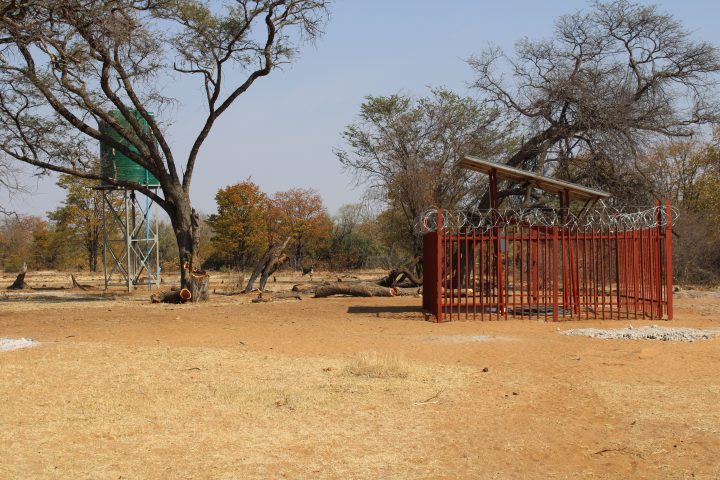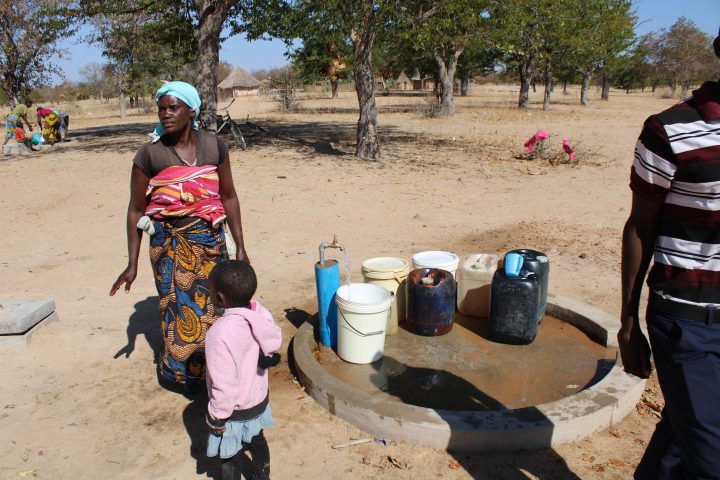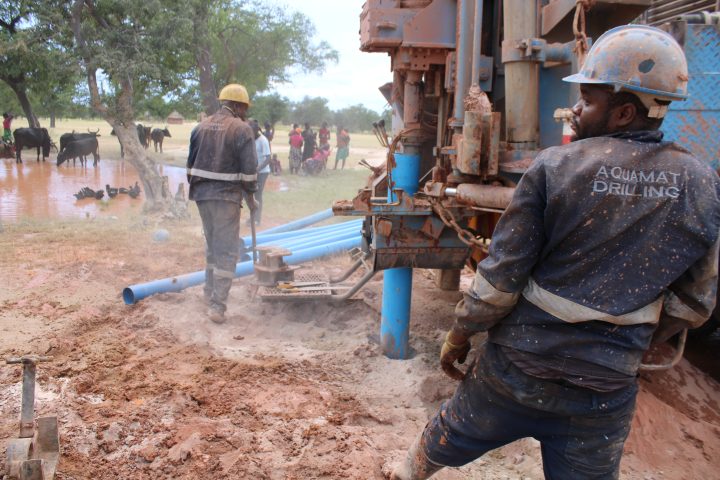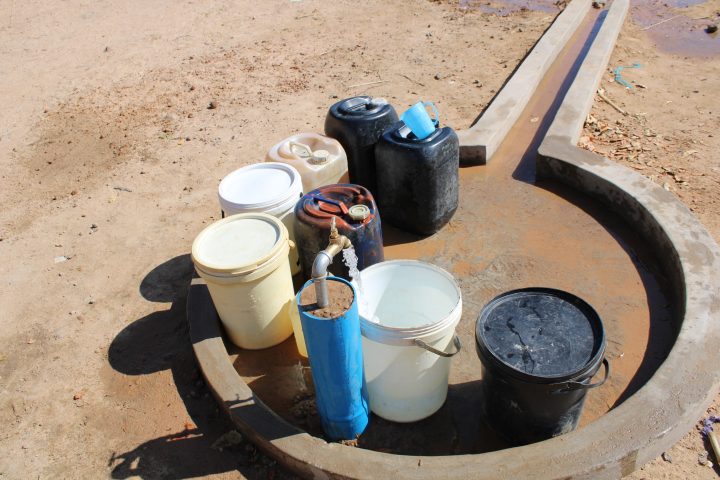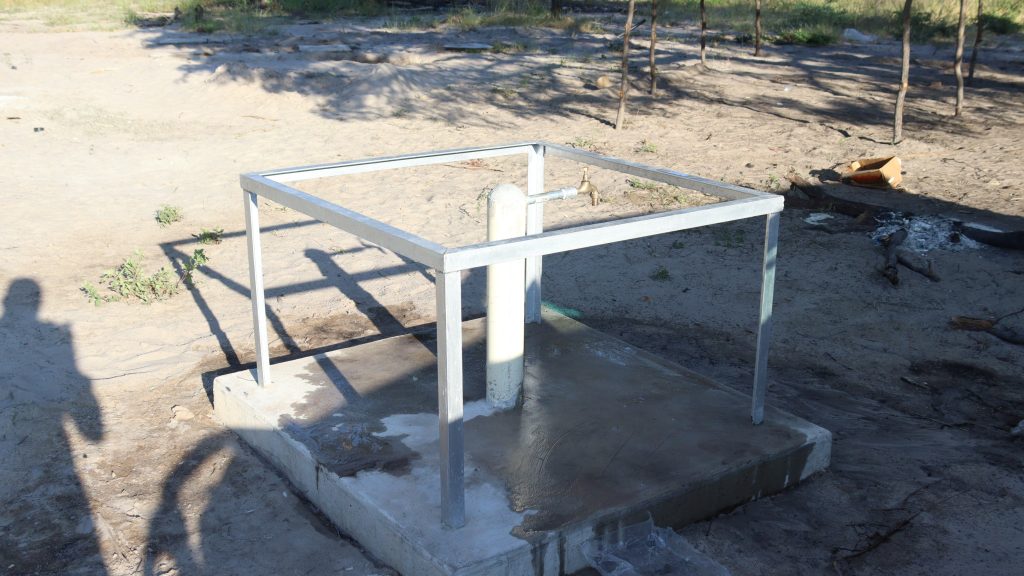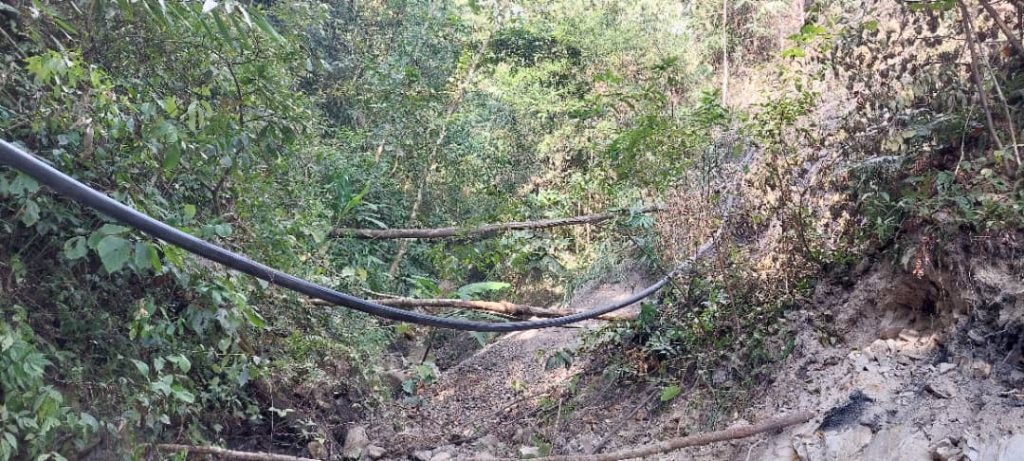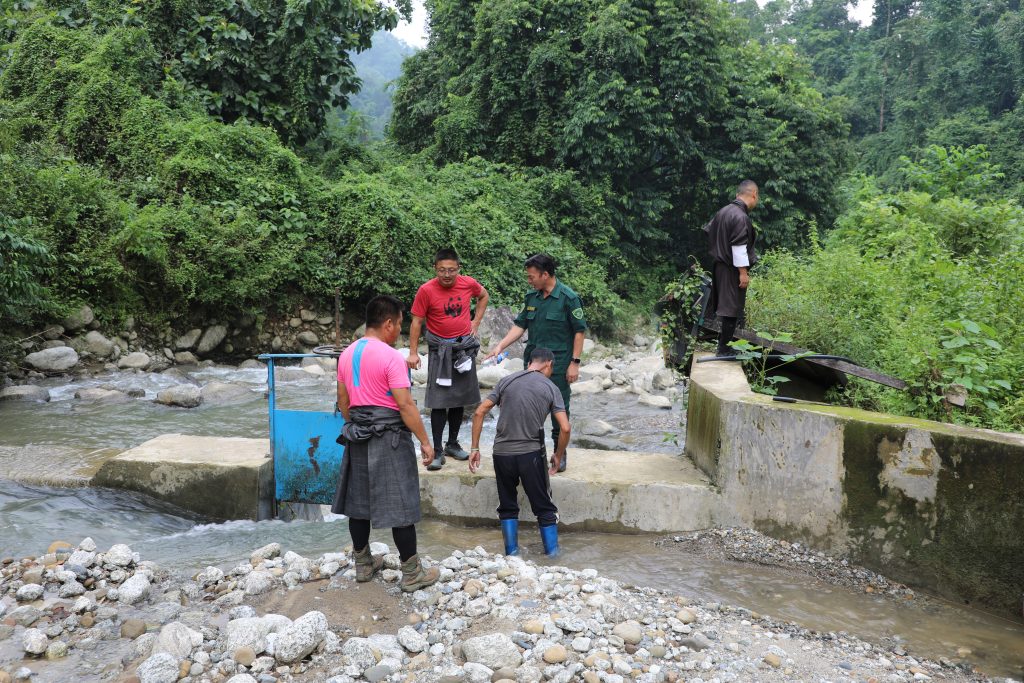Purpose
Install 3 solar-powered boreholes to increase water security for communities in 3 wards in Zimbabwe.
Climate Impacts
The following impacts were reported by communities in Manjolo, Pashu, and Mpanedziba:
• Loss of water source due to decreased rainfall and extreme heat
• Increased human-wildlife conflict as both compete for the same resources
• Livestock mortality due to lack of water and suitable pasture
• Reduction in crop yields and wild fruits
• Reduced income generation due to declining agriculture yields
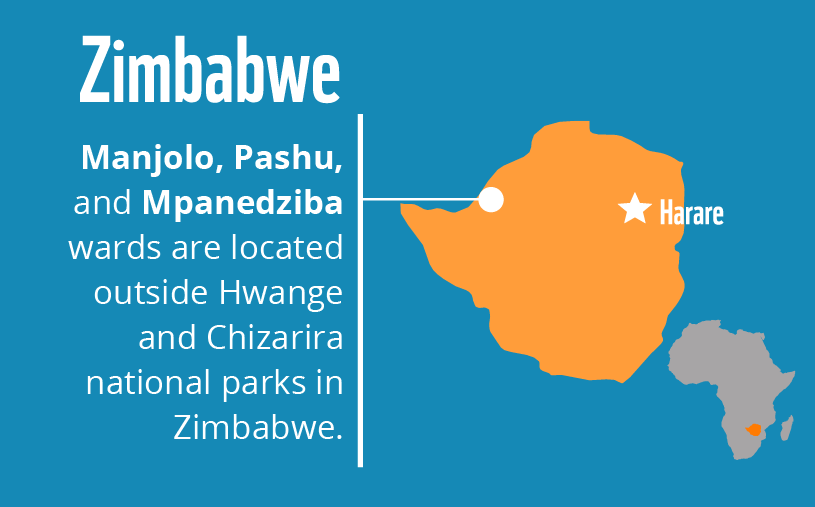
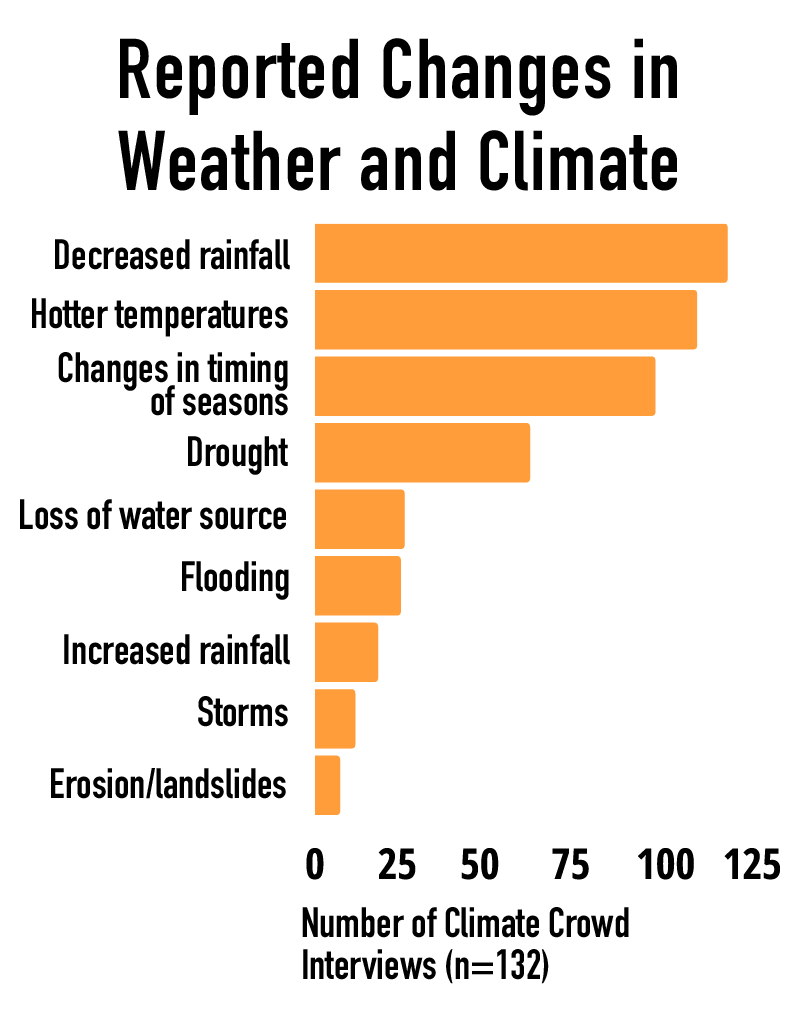
Activities
Site Selection
Three target sites were selected by communities during community engagement sessions The areas were selected due to their extreme vulnerability to water scarcity.
Hydrogeological surveying
A qualified hydrologist conducted surveys of the project areas to determine where the borehole drilling should take place, what method should be used, and how deep to drill.
Borehole drilling
A borehole drilling team was contracted and deployed to the project sites for land clearance and commencement of drilling.
Water capacity and quality tests
Borehole water capacity and quality tests were conducted to ascertain what size pump would be needed to extract the water and whether the water met potability standards for community and livestock use.
Solarization and plumbing
Water pumps, outlet taps, and water storage tanks were installed at each site. After plumbing was completed, solar panels were installed to sustainably power the water pumps.
Security installation
Security fencing was erected at the three sites to protect the equipment from wildlife and unregulated use.
project outcomes
project design
In Manjolo, Pashu, and Mpanedziba wards, water scarcity is common due to little rainfall and hot temperatures—conditions that are only exacerbated by climate change. To access water, many community members have to walk long distances to nearby water sources while others have to use shallow wells which have poor water quality. To help alleviate intensifying water insecurity and the stress it causes community members, 3 solar-powered boreholes were installed in each ward. Borehole locations were selected by the communities to avoid areas of cultural and religious value. An external contractor, Aquamat Drilling, was identified and selected to undertake drilling and solarization services in all three sites. Prior to drilling, geophysical and hydrogeological surveys were conducted to determine how deep each borehole needed to be and which drilling methods would be best. The surveys led to the decision to use air drilling as this method is most suitable for dry terrains. Since this region of Zimbabwe is one of the driest, Aquamat Drilling had to drill to large depths to find adequate water. In Pashu the borehole ended up being 70 meters deep, and in Manjolo it was 90 meters deep. The deepest was in Mpanedziba, where they had to drill 120 meters to reach adequate water. Borehole capacity tests were carried out along with water quality tests to assess suitability for human consumption.
The next phase of the project involved the installation of solar panels. Solar panels were installed to power each borehole’s submersible pumps, increasing the project’s environmental sustainability. Due to the varying depths of the boreholes, some needed more solar panels and stronger pumps than others. In Pashu and Manjolo, the boreholes received 6 and 5 solar panels respectively and a 1 horse-power pump while the borehole in Mpanedziba received 6 solar panels and a 2 horse-power pump. Each community was also given a 10,000-liter water tank to store water and ensure water availability if the borehole malfunctions. To protect the boreholes from wildlife and intruders, fences were installed with locks. Community members selected responsible committees who will promote the safeguarding of the premises and regulate the use of the boreholes in cooperation with government-trained borehole experts.

